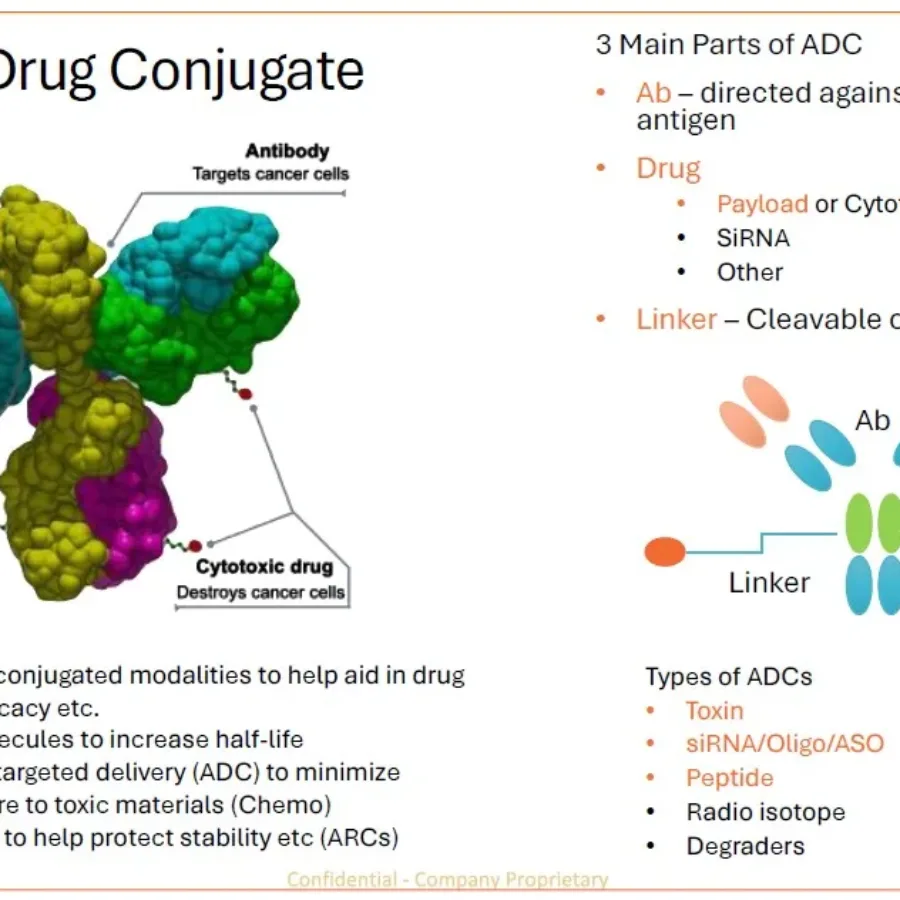 Posters & Papers
Posters & Papers
This presentation, given at the 2025 AAPS PharmSci Conference by Dawn Dufield, PhD, Scientific Officer of Mass Spectrometry at KCAS Bio, reviews Bioanalytical Strategies for Therapeutic Drugs and Their Conjugates (ADCs, Oligos, siRNA, ASOs and AOCs/ARCs) by QqQ/HRMS. ADC_ARC Conjugates Presentation AAPS 2025_KCAS Bio…
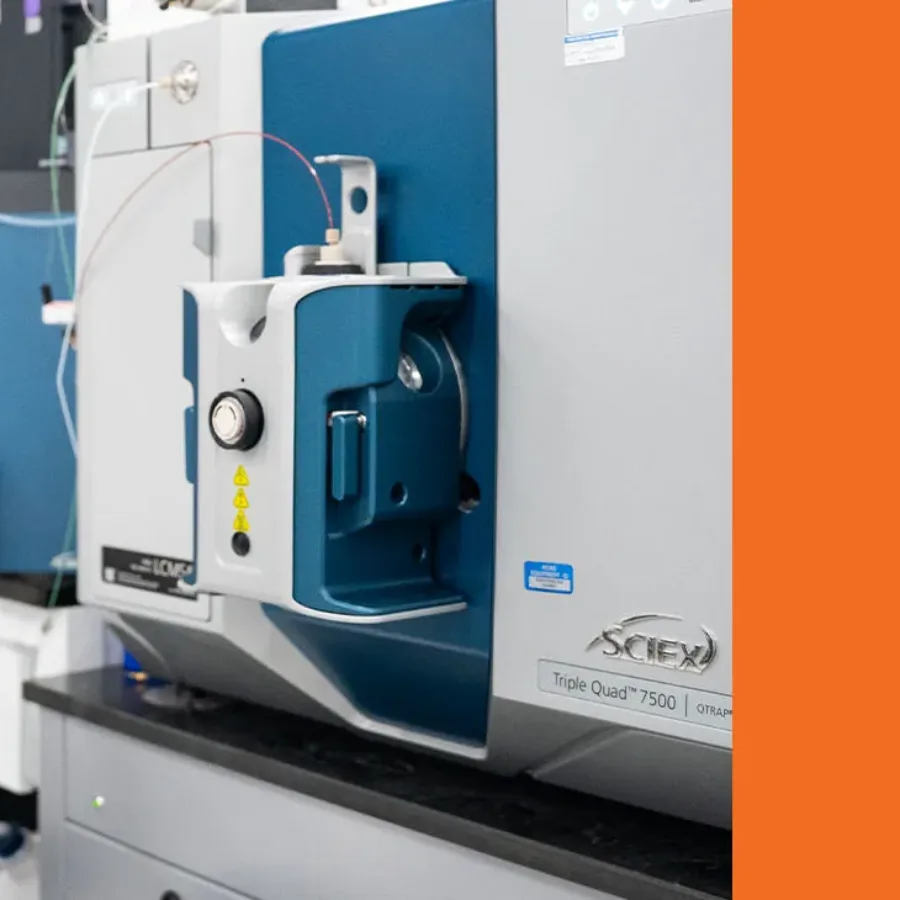 Blogs
Blogs
Hybrid LC-MS/MS is a technique that combines an affinity capture step with LC-MS/MS detection. It typically requires only one antibody, in contrast to conventional ligand-binding assays (LBAs), which usually need two. This approach leverages the combined selectivity of affinity extraction and the analytical power of tandem mass…
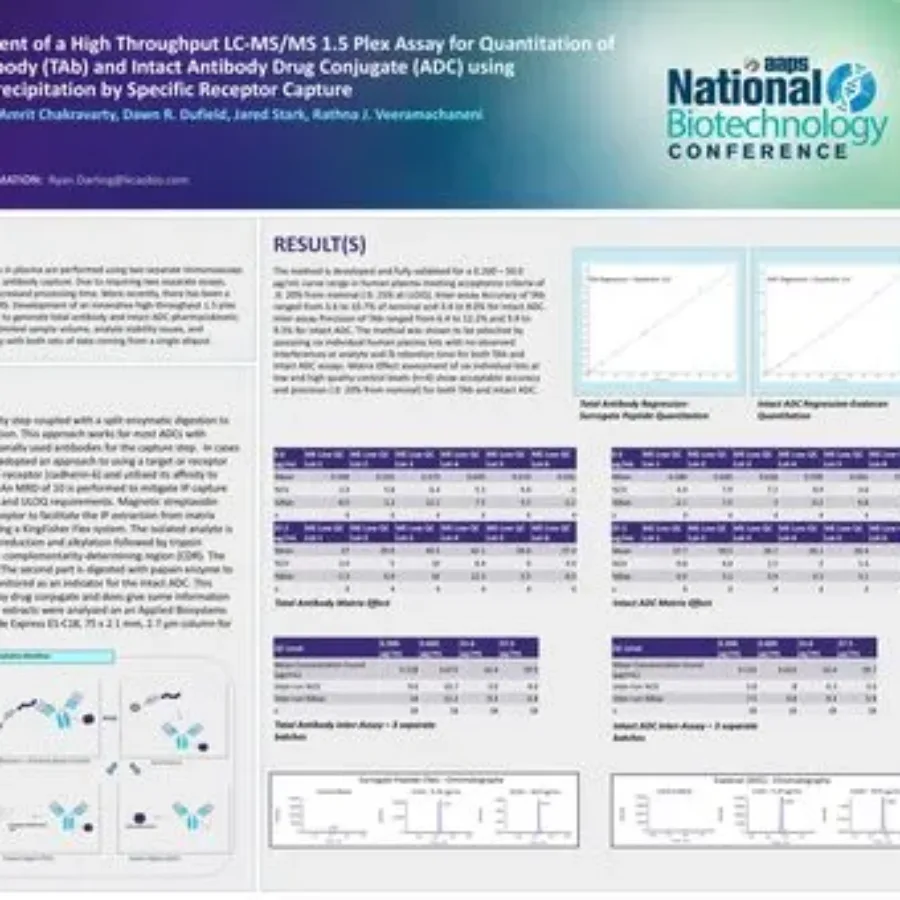 Posters & Papers
Posters & Papers
Discover in this poster presented by Ryan Darling at the AAPS National Biotechnology Conference 2025 on the use of a hybrid LC-MS/MS approach for the quantitation of total antibody TAb and intact Antibody Drug Conjugate (ADC). HybridLC-MSMSAssayforADCQuantitation_KCASBioDownload If you have any…
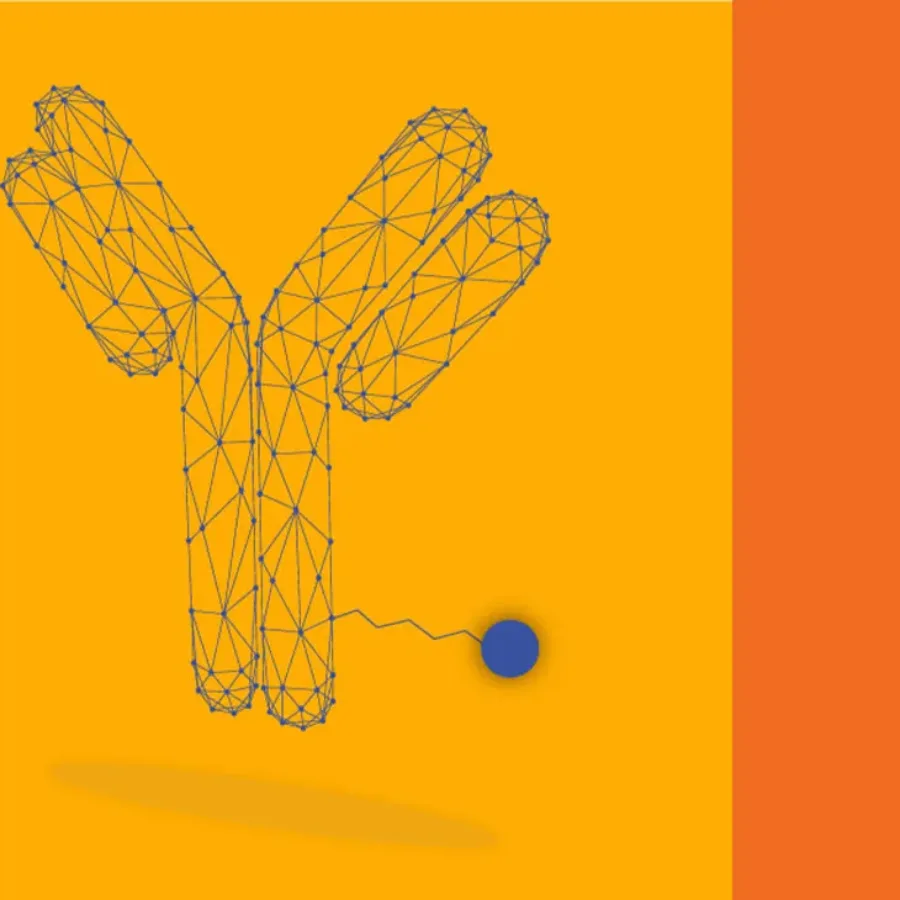 Blogs
Blogs
ADCs represent a promising class of targeted therapies, and understanding the intricacies of their analysis is crucial for their successful development. In this blog, we address common questions to guide you through the various considerations involved in ADC research and testing. We will cover key topics related to the…
 Blogs
Blogs
Antibody-drug conjugates (ADCs) have been conventionally developed for a wide range of oncological applications since the first ADC approval in 2000 by the FDA. Typically, an ADC consists of three main components: antibody, linker conjugate, and therapeutic drug (payload). The mechanism of an ADC involves the antibody binding to a specific…
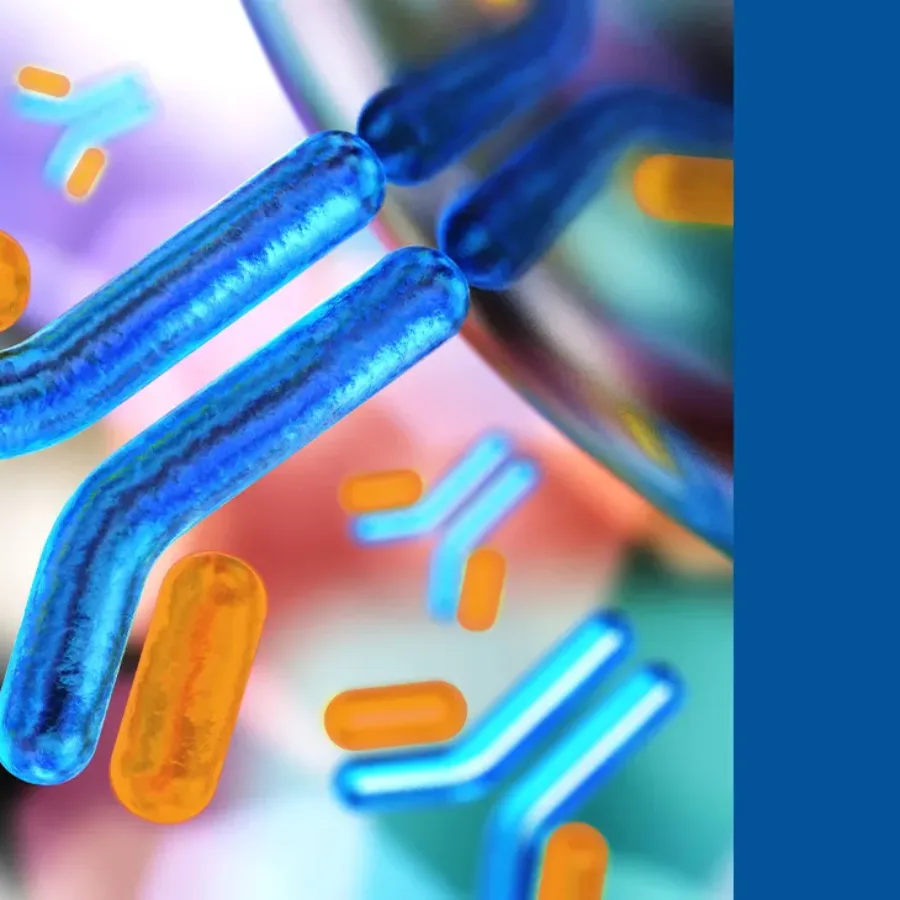 webinars
webinars
As the pharmaceutical industry continues to evolve, so does the technology behind drug development. One of the most groundbreaking advancements in bioanalysis is Hybrid LC-MS/MS technology, which is rapidly becoming the new standard for analyzing Antibody Drug Conjugates (ADCs). KCAS Bio is proud to be at the forefront of this…
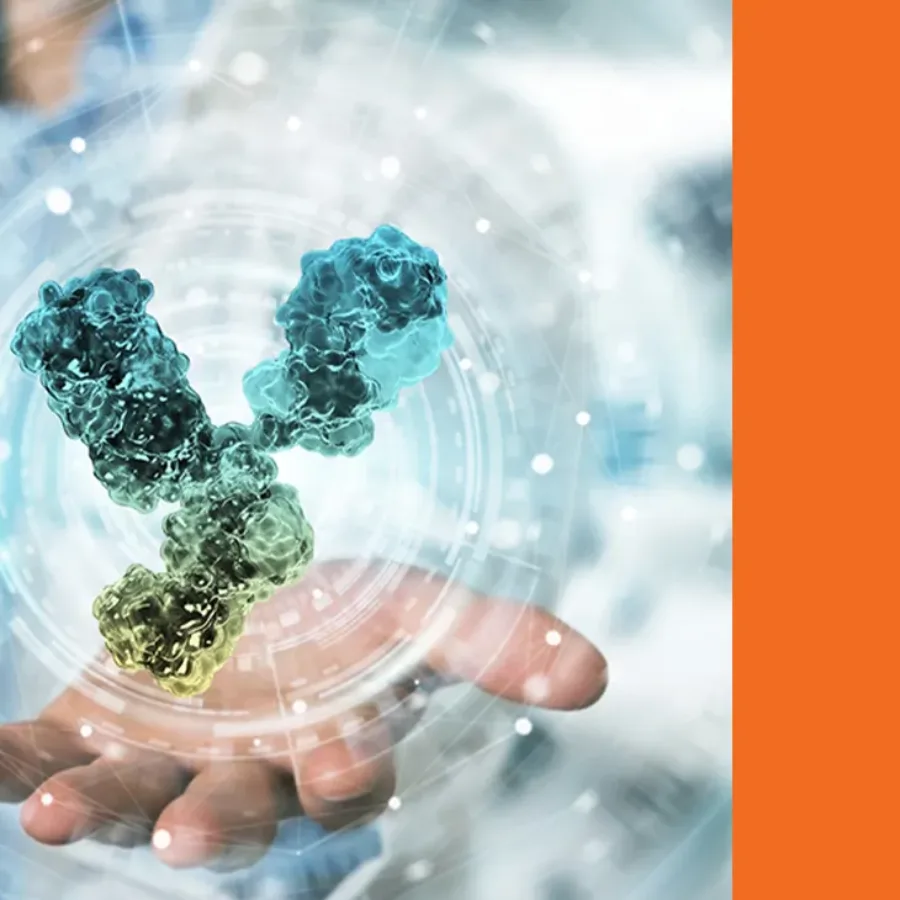 Blogs
Blogs
The age of therapeutic conjugation is upon us! Bioanalysis for support of next-generation Antibody Drug Conjugates (ADCs) and Antibody siRNA Conjugates (ARCs) have exploded recently due to the efficacy and safety that these therapies offer for immuno-oncology, rare diseases, vaccines, and potentially many other diseases. Recently, we have seen the…
 Blogs
Blogs
Those of you attending the 18th annual WRIB meeting in San Antonio, TX are invited to attend a poster presentation being given by members of the KCAS Bio team: Jack Rogers, Jessie Allen, Yoka Thomas, and Cheikh Kane. This project developed and characterized a novel algorithm for automated ISR selection…
 Blogs
Blogs
Dawn Dufield, PhD is the Scientific Officer for Mass Spectrometry and has been with KCAS Bio since 2018. Before joining KCAS Bio, she worked in the quantitative large and small molecule LC-MS/MS field for Pfizer for over 20 years. Dawn has been a pioneer in the Hybrid LCMS field and…
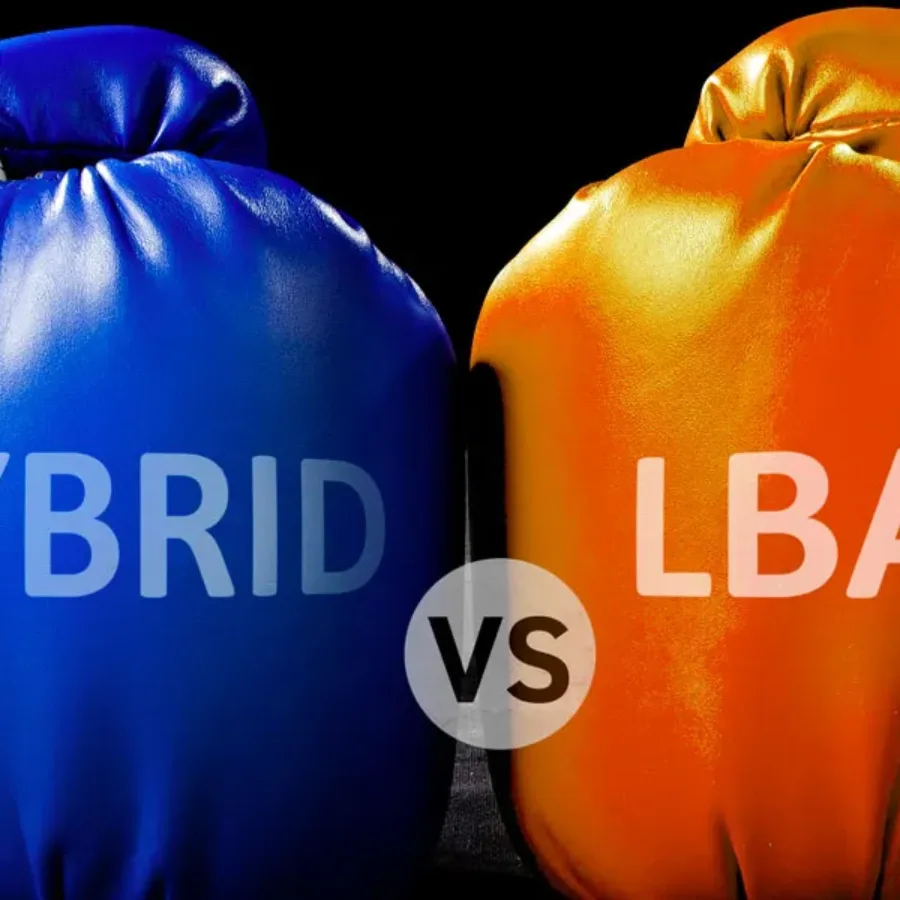 Videos
Videos
Dawn Dufield, Ph.D. and Dominic Warrino, Ph.D. discuss their approach to ligand binding assays (LBAs) and hybrid mass spectrometry (Hybrid LC-MS/MS) in this 11-part video series. What Makes a Good CRO for Bioanalysis? Are there any specific technologies that are more useful to have together? What is a Hybrid…
 Blogs
Blogs
In the scientific field, the often neglected fifth sense, the sense of smell, contributes to broadening our understanding of various phenomena, particularly in the field of biomarkers.Here, we will guide you along our lines of thought on the importance of our olfactory sense, and how it contributes to scientific exploration…
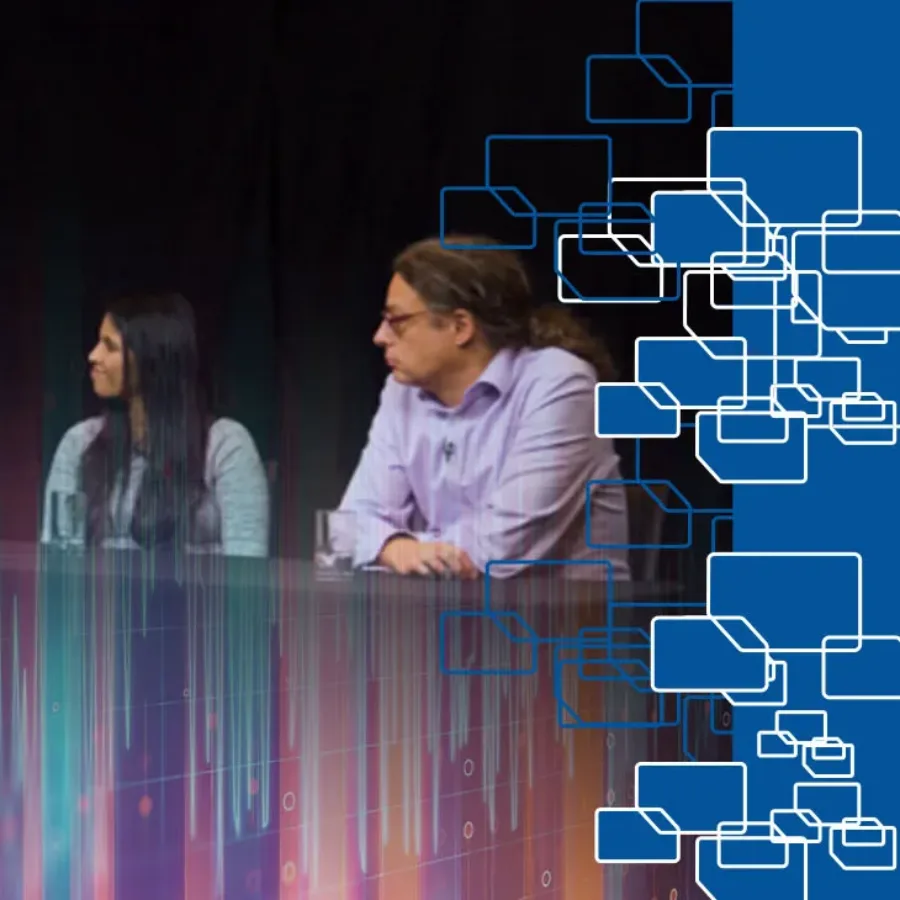 webinars
webinars
For researchers and professionals working in the biopharmaceutical industry, an upcoming Bioanalysis Zone Panel Discussion will offer a unique opportunity to stay informed about the latest advancements in quantitative analysis techniques. Research projects can only succeed when selecting the appropriate biopharmaceutical quantification technique. Staying up-to-date on…